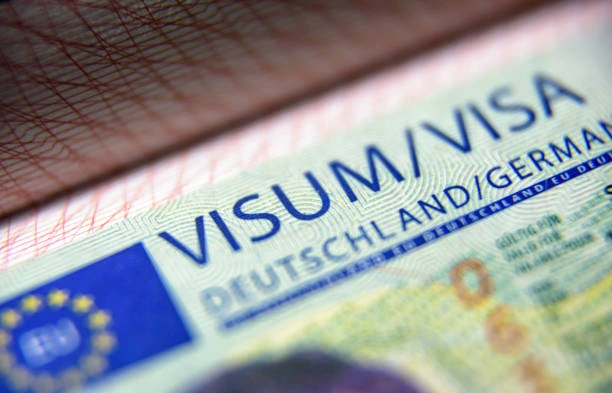Getting a German Student Visa: Your Path to Education Abroad
Are you looking to study medicine and dentistry, law, industrial engineering, automobiles, or engineering? If you are, then consider Germany. Aside from not having to pay any tuition fees in public universities, studying in Germany has many other benefits. However, before you study there, you will need a student visa. Getting a German student visa requires you to complete a few steps.
After we help you figure out which type of visa you need, we will go over the application process for getting a student visa for Germany. Once we finish that, we will discuss some of the common issues or challenges students face getting these student visas.
Understanding the German Student Visa
Types of student visas
1. Student Applicant Visa
This is for those who are still applying to a German university. If you’re gearing up for admission, this visa lets you stay in Germany for up to three months to sort out your acceptance.
2. Student Visa
Once you’ve got that acceptance letter, it’s time for the Student Visa. You need this if you’re already accepted into a German institution and ready to embark on your educational journey.
Application process
Embarking on the journey to study in Germany starts with a crucial step – getting a German Student Visa. Understanding this process is key for a smooth transition into the German education system. Here’s a simple guide to help you through it:
1. Choose the Right Visa Type
Before you start, figure out which German Student Visa suits your course. There are different categories based on your program’s nature and duration. Pick the one that fits your academic goals.
2. Gather Info
Collect all the necessary details for your application. Know about your program, the institution you’ll attend, and your accommodation plans. Having this info ready makes the application process easier.
3. Check Eligibility
Make sure you meet the visa eligibility factors. Usually, this involves having an acceptance letter from a recognized German institution, proving financial stability, and meeting language proficiency requirements.
4. Prepare Documents
Get your documents in order. This includes your passport, passport-sized photos, proof of enrollment, academic transcripts, proof of finances, and health insurance info. Organize them neatly to avoid issues during the application.
5. Fill the Form
Complete the visa application form accurately. Please pay attention to the details and ensure they match the supporting documents. Any discrepancies can cause delays in processing.
6. Schedule an Appointment
Some consulates or embassies need you to book an appointment for visa submission. Plan further, book early, and bring all required documents to your appointment.
7. Pay Visa Fee
Pay the necessary visa application fee. The amount can vary based on your nationality and visa type. Check with the German consulate or embassy for the specific fee.
8. Attend the Interview
Some applicants may have to attend an interview. Prepare by reviewing common questions and practicing your responses. Confidence and clarity can positively influence the visa officer’s decision.
9. Processing Time
Be patient during the processing period after submitting your application. It usually takes around 8-12 weeks. Follow up on your application status and check it when you can.
10. Get Your Visa

Once approved, collect your visa from the consulate or embassy. Double-check all details on the visa sticker. It will mention the duration of your stay and any additional conditions.
Getting through the German Student Visa application requires careful attention to detail and good preparation. Following these steps boosts your chances of a successful application, setting the scene for a rewarding educational experience in Germany. Consult visa service providers if you are facing any problems.
Getting a German Student Visa: Challenges Faced
Going to Germany for higher studies is an exciting adventure, but it does come with challenges. Let’s have a look at some of the common problems students face while getting a German student visa:
1. Sorting Documents
The first challenge is getting all the paperwork right. From school records to financial documents, it’s a lot. Organizing these papers can be overwhelming. It’s like finding your way through a maze of paperwork.
2. Money Matters
Proving you have enough money is a big deal. It’s not just about tuition; you must show you can cover living costs. There are big challenges to figuring out where the money comes from, understanding what proof is needed, and meeting German financial rules.
3. Language Test Stress
For those who don’t speak German, proving language skills is tricky. Many schools want proof of your German skills, which means taking language tests or classes. The challenge is preparing well to meet these language expectations.
4. Adjusting to a New Culture
Adapting to a new culture in Germany might pose challenges once you have your visa in hand. Learning a new education system, lifestyle, and social norms needs resilience and an open mind. It’s both rewarding and demanding to bridge the cultural gap.
5. Feeling Homesick and Alone

Being far from home can make you miss it and feel lonely. Many students struggle to build a support system, make friends, and find a place in a new country.
6. Figuring Out Visa Renewal
As your first visa nears its end, renewing or extending it is another challenge. Knowing what’s needed, applying on time, and sticking to visa rules require careful attention and planning.
Getting a German Student Visa is an adventure with twists and turns, but overcoming these challenges makes the journey worthwhile.
Must Read Blog: Visa Fraud and Scams: How to Protect Yourself
Conclusion
Once you know which type of student visa you want, you can start getting a German student visa. Following our guide should make the process simple. However, you can always get visa processing services if it is difficult. There will always be challenges when studying abroad, in Germany or elsewhere. But overcoming these problems and going abroad will make all your effort worth it.
FAQs
1. How long does it take to process a German Student Visa?
The processing time for a German Student Visa can differ, usually taking approximately 8-12 weeks. It’s advisable to apply well in advance to avoid any delays.
2. Can I work while studying in Germany on a student visa?
Yes, international students in Germany are allowed to work part-time during their studies, typically up to 20 hours per week.
3. What language proficiency tests are accepted for a German student visa?
Commonly accepted language proficiency tests include TestDaF, DSH, and Goethe-Zertifikat. Check with your chosen institution for specific requirements.
4. Is health insurance mandatory for international students in Germany?
Remember that health insurance is a must for international students studying in Germany. It’s essential to have coverage that meets the German health insurance standards.
5. Can I renew or extend my German student visa
Yes, you can renew or extend your German student visa. Ensure that you start the renewal process well before the expiration of your current visa.

